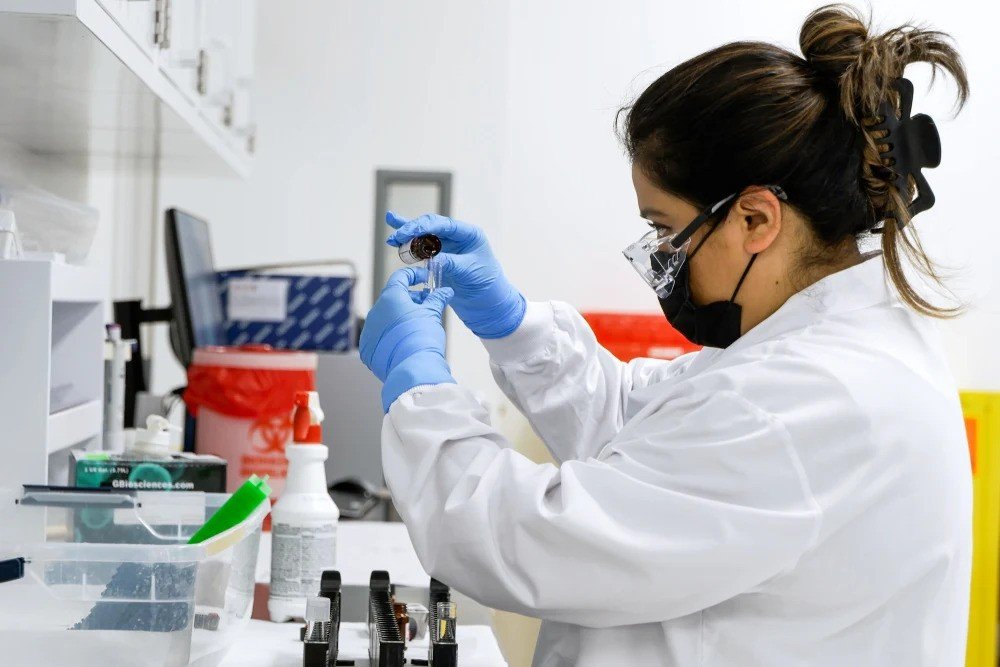Karen Vasso, a 47-year-old farmer from Chelmsford, Massachusetts, prioritises her health. Along with the physical activity from her job, she’s an avid swimmer and triathlete. With a background in nutrition, she understands that maintaining good dental health is vital to overall well-being.
For years, Vasso has tried to make regular dentist visits a priority. However, a couple of negative experiences made her more cautious about what to look for in a good dentist.
Her first bad experience happened several years ago when she was a single mother with limited health insurance options. “I went to this quiet, dark office in a basement,” she recalls. The place was mostly empty except for the dentist. “It felt scary,” she thought. Despite her instincts, she proceeded with the appointment. After cleaning her teeth, the dentist claimed she had a cavity and needed a filling. Knowing her dental health well, she suspected he was mistaken. When she asked to see the cavity on the X-ray, the dentist hesitated and ultimately had no evidence. Disappointed, she left and didn’t return. Since he was the only dentist covered by her insurance, she avoided dental visits for years.
Years later, after moving to a new town with better insurance, Vasso felt it was time to seek dental care again. She chose a large dental chain included in her plan, but the experience was shocking. After a routine cleaning and exam, they informed her she had six cavities, which she found unbelievable. Before she could clarify anything, she was ushered to the front desk to pay and schedule more appointments for treatment.
Feeling distrustful, she sought a second opinion from another dentist, who confirmed she had no cavities at all. “Can you imagine if they had drilled into my teeth for no reason?” she says, still astonished.
Trust: The Foundation of the Dentist-Patient Relationship
Vasso’s story, while extreme, highlights the importance of finding a trustworthy dentist. “A dentist has a duty to be honest,” says Dr. Ada Cooper, a dentist in New York City and spokesperson for the American Dental Association (ADA).
“Strong doctor-patient relationships are rooted in truth and trust. Trust in treatment planning is essential. Once you establish that trust, you and your dentist can work together effectively to improve your dental health,” she explains. Dr. Cooper refers to this as “finding your dental home,” a place where you can feel confident that your dentist has your best interests in mind and provides the right care you need.
However, knowing if your dentist’s advice is accurate can be challenging. Cooper suggests that, as Vasso did, you should evaluate whether the recommendations make sense. “If something feels off—if the proposed treatment seems unreasonable, or if the dentist is unwilling to answer your questions clearly, it may be time to seek a new dentist.”
What to Look for in a Dentist
When searching for a dentist, consider the following factors:
- Location and Hours: Look for a dentist close to your home or workplace, with convenient hours that fit your schedule. If you can’t make appointments, maintaining a relationship will be difficult. While telehealth options have grown since the pandemic, in-person visits are still necessary for cleanings and checkups.
- Competence and Compassion: “Competence, communication, and compassion are essential traits of a good dentist,” says Dr. John Luther, chief dental officer at Western Dental, a large dental organisation based in California. A good dentist fosters open dialogue with patients to address their needs and concerns and understands the connection between oral health and overall well-being.
- Communication Styles: Your dentist should communicate in a way that you understand. For instance, if English isn’t your first language, you might need a translator. Having someone who can explain health-related vocabulary in your native language can be incredibly helpful.
- Professional Affiliations: Look for dentists who are members of the ADA, which represents over 162,000 member dentists in the U.S. and Puerto Rico. ADA membership comes with essential commitments, such as preserving patients’ rights, doing no harm, staying current with dental advancements, and providing high-quality care.
- Preventive Care Emphasis: A good dentist will prioritise preventive care, including regular checkups and fluoride treatments. When dental issues arise, they should ensure that patients understand their treatment options.
Preparing for Your First Visit
Before your first appointment with a new dentist, bring a list of any medications you’re taking, even if they’re not directly related to dental health. Expect to spend more time in the office than on follow-up visits, as a good dentist will gather your dental and medical history to provide the best care. They may also perform a cleaning during this initial visit.
The Importance of Dental Health
Consistent dental care is crucial for longevity and overall wellness. Although dental health is often overlooked—many insurance plans don’t cover it—oral health significantly impacts overall health. Issues that start in the mouth can lead to serious health problems. Poor oral health has been linked to conditions like endocarditis, cardiovascular disease, premature birth, and low birth weight.
Conversely, certain diseases, such as diabetes and autoimmune disorders, can negatively impact oral health. A good dentist can identify early signs of serious conditions like cancer and help prevent minor issues from escalating into significant problems. Regular checkups are vital.
“The most frustrating part of being a dentist is seeing patients with manageable problems who let them worsen,” Dr. Cooper notes. “By the time they seek treatment, it often requires more time and money—or worse, the tooth may be beyond repair.”
Many believe that if they aren’t in pain, they can delay dental care. This isn’t the best approach; waiting until something hurts typically leads to more extensive and costly treatments.
Daily Oral Hygiene Practices
Maintaining good oral hygiene is essential for reducing the risk of dental problems. This includes:
- Brushing your teeth at least twice a day with fluoride toothpaste
- Flossing daily
- Eating a healthy diet
- Replacing your toothbrush every three to four months
- Avoiding smoking and tobacco use
- Scheduling regular checkups and cleanings
Since dental health is a vital component of overall health, it’s essential to find a dental home, whether you require serious treatment or just routine cleanings.
Finding the right dentist may not always be straightforward, especially considering insurance constraints, but advocating for yourself and seeking a dentist you can trust is a worthwhile process that will benefit your health in the long run.







